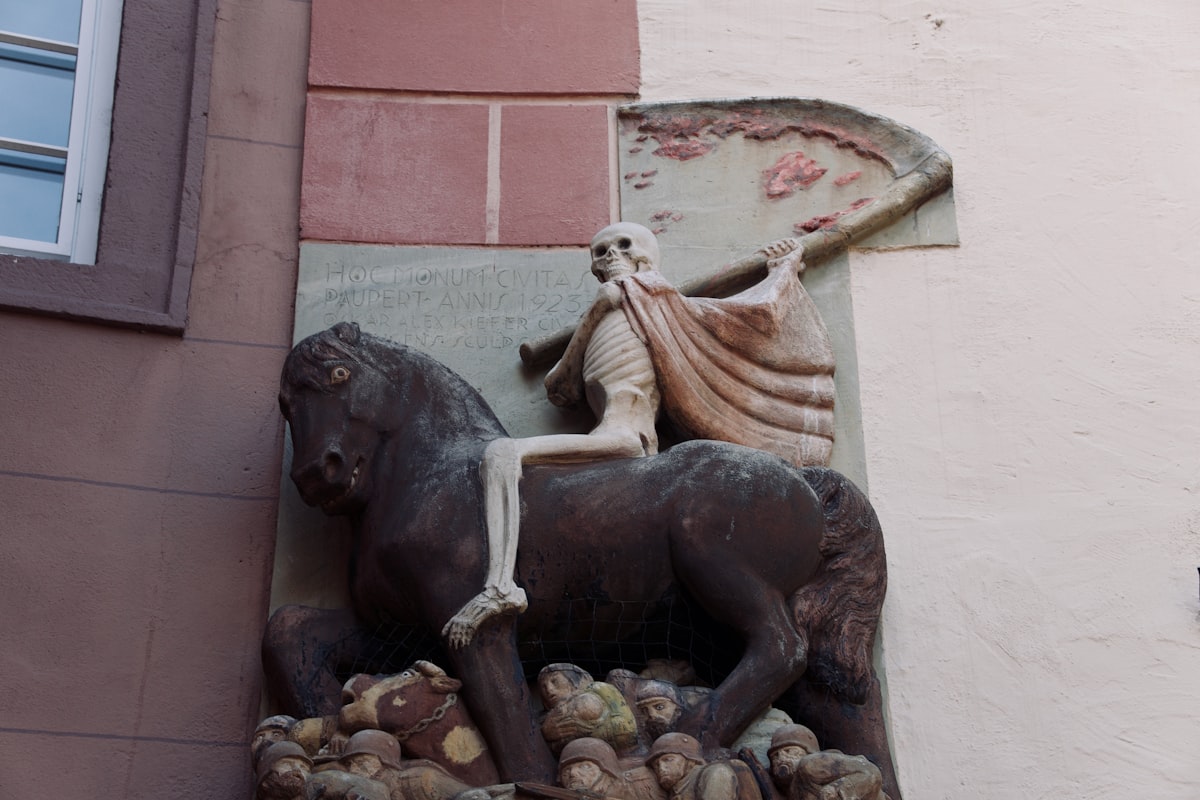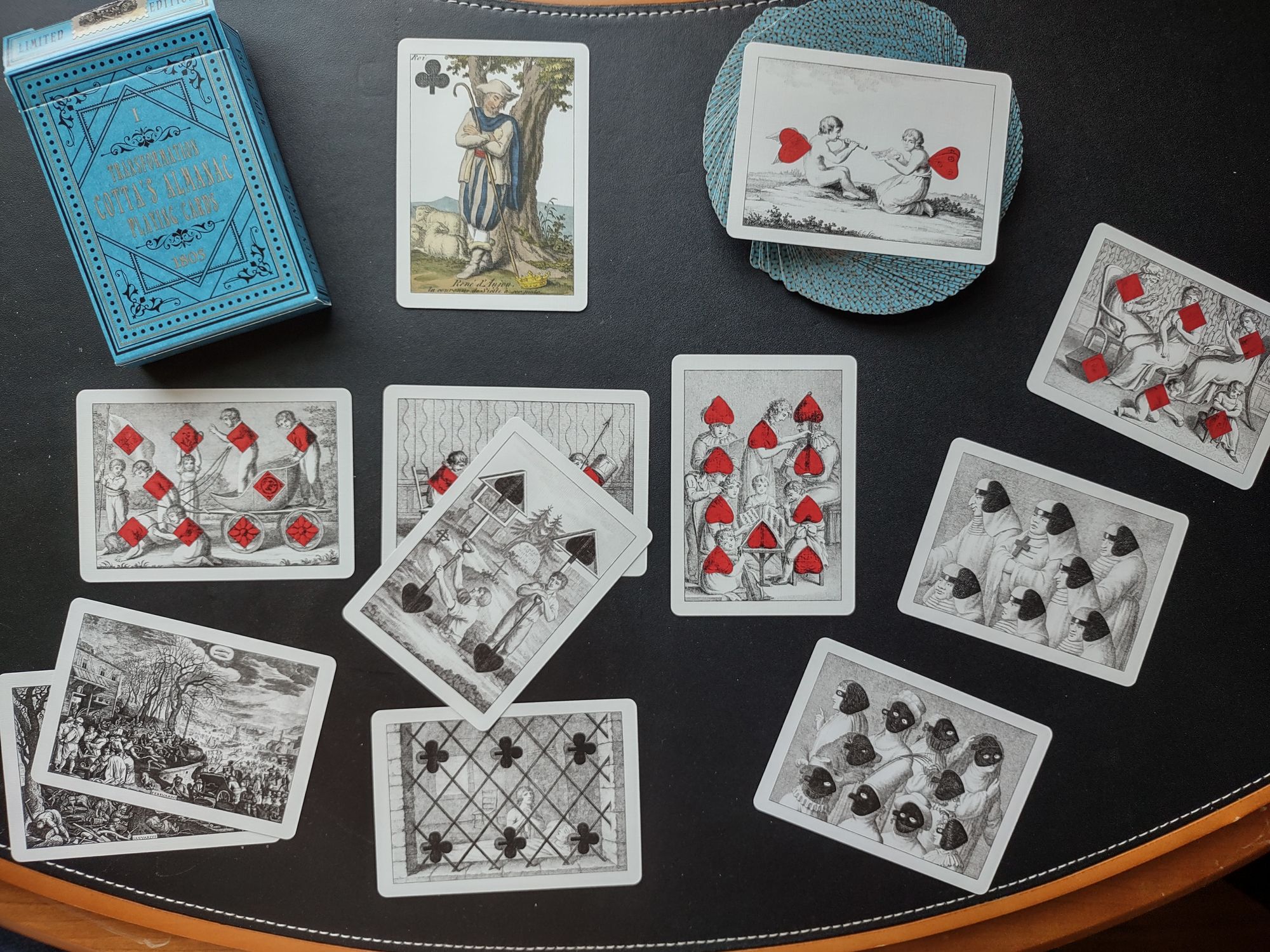X: Scythe
How a blade bears witness to a failed rebellion.

Good morning. Today is décadi, the 10th of Prairial, Year CCXXXI. We celebrate les faux, a blade for cutting stalks of tall grass.
Scythes are for cutting things apart, but let's use it to tie some things together: the dangers of taxing people discriminately from the martagon post, the Amish from yesterday's wild thyme post, the French Revolution that underpins this newsletter, and the idea of a more "natural" calendar that animates it. Oh, and scythes. Oh, and it's Memorial Day in America, so a good time to remember fallen soldiers, let's throw that in there as well.
It all starts with Martin Luther.
The Holy Roman Empire was, famously, none of these three things: holy, nor Roman, nor an empire. It was more of a confederation of states, as if the United States had continued bumbling along under the Articles of Confederation instead of buckling down and writing the Constitution. But worse, because it was governed under a feudal system. Whichever Hapsburg family member happened to occupy the throne had enormous say over how much each principality within the "empire" got taxed, and in the middle of the 16th century, that was Charles V of Spain, who naturally was more inclined to play nice with the traditional Latin states and taxed the Germanic states pretty intensely. They hated this.
The reason wasn't just the money, but where the money went, which was Rome. What if this money went to German churches instead? Boom, protestants, born with ringleader Martin Luther, who certainly had more religious motivations than the ones I'm outlining here, but the taxation bit is what matters for this story.
Rebelling against the Vatican was a radical move, but Luther was – outside of theology – more of a moderate political reformer. Still, rebellion begets rebellion, and many German peasants started agitating against the idea of this heavy tax burden at all. They even had a sympathetic clergyman named Thomas Müntzer on their side, a sort of Malcom X to Martin Luther's, well, Martin Luther King, Jr.
Müntzer and Luther hated each other, which may have pushed Müntzer a bit further along the path of armed rebellion than he'd at first anticipated. From 1524 to 1525, hundreds of thousands of German peasants violently rebelled against their feudal overlords in what was the largest attack on monarchy until the, yep, French Revolution. Müntzer counselled leaders of the movement (who were a loose assembly, rather more resembling Occupy Wall Street or Black Lives Matter than the relatively well-organized Paris rebels who stormed the Bastille), and even found himself at the head of a small army of 6,000 peasants at the Battle of Frankenhausen.
These peasants had zero military training and were armed with farming tools which were barely modified. Müntzer's own sword was a scythe blade yanked from its long stave and fitted to a sword handle. It's still in a museum in Dresden, the oldest known example of a scythe sword, and it's there because, as you might imagine, Müntzer's forces were easily overrun by the professional army of the nobles, he was captured and tortured and killed on ... well, look at that – today!
I don't think Fabre d'Eglantine consciously chose the martyr of the previous largest anti-monarchy rebellion as a cryptic "saint" for scythe day, but the coincidence is delicious.
I promised a calendar tie-in, and it's right there on the sword. Like many peasant farming implements, the blade was engraved with a runic calendar, a sort of farmer's almanac written in old Nordic runes that kept perpetual track of the days using the ancient Metonic cycle instead of the church's solar calendar.
The Metonic cycle is what's still used to calculate Easter (hello, redbud day) and is merely an observation that the lunar month and the solar year will, more or less, resync with each other every 19 years. For semi-literate peasants who didn't know Latin and kept time by the moon and the solstices, this was a relevant way to keep track of when religious holidays (a.k.a. the only days of rest they got) took place. So that's why it was engraved all up and down Müntzer's scythe blade. It wasn't decoration, it was a list of vacation days posted on his agricultural version of a cubicle wall.
But what does all this have to do with the Amish? Well, the reason the German Peasant's Revolt isn't as well-remembered as the French Revolution is that it failed completely, and about a third of all the peasants who took up arms were ruthlessly slaughtered, with the rest heavily fined and thoroughly returned to the bottom rung of European society. Many of the survivors didn't give up the notion that there was a better way, free from the structures of society, where they could worship in peace and make decisions collectively without government interference. These were the anabaptists, and they kept their traditions even as the continued to migrate around looking for a peaceful corner of the planet where they'd be left alone to do their thing. It was these German-speaking migrants who were early settlers of William Penn's colony in the as-advertised religious haven of England's North America, and from thence, the Amish.
The American Amish don't still keep the runic calendar, but there is a group of neo-pagans in Estonia who do. (I've decided it's probably best not to research all of their beliefs.) If you're curious, here's a non-Nazi-inflected primer on how the 19-year perpetual calendar works and could fit on a single scythe blade.
Today's card: 2 of hearts

This is a downer outcome for sure, but the net result of juggling so many big events and emotions is that something will have to give, and if we follow this reading's advice to focus on career, there will definitely be a void that opens up in our personal life. The truth is this was bound to happen anyway, and this reading just reaffirms that there's no action that will mitigate the loss of our friend. Hopefully the next reading will be more upbeat!



